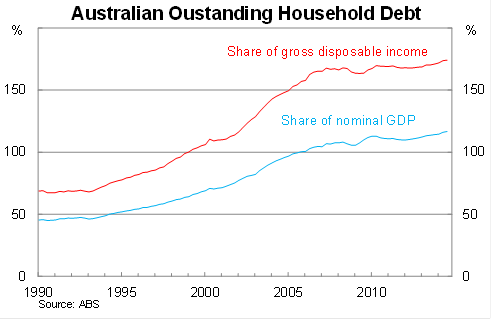Tackling intergenerational theft? Abbott doesn't have a clue
When it comes to tackling intergenerational theft the Abbott Government doesn't have a leg to stand on.
With his political future on the line, Prime Minister Tony Abbott delivered a speech yesterday to the National Press Club that was strong on rhetoric but light on details -- in other words, exactly what we've come to expect.
That speech will be analysed extensively in the days to come but one segment that deserves greater scrutiny is Abbott's comments on intergenerational theft and his government's efforts to fix the problem.
“Reducing the deficit is the fair thing to do -- because it ends the intergenerational theft against our children and grandchildren,” Abbott said.
That's a bit rich coming from a government that has axed the carbon tax, tried to increase university fees and hopes to cut youth welfare. It's a bit rich coming from a government that doesn't have a thing to say about Australian housing policy or the superannuation concessions that largely benefit older and richer Australians.
Notwithstanding that government spending and the deficit has exploded under his watch, Abbott's definition of intergenerational theft -- it's all about the budget -- is also a remarkably narrow definition. It's possible that deficit spending could be to the detriment of younger Australians but it is less readily understood that, under certain circumstances, deficit spending may provide benefits for years to come.
Take infrastructure investment for example, an area in which the self-proclaimed ‘infrastructure Prime Minister' should be well-versed. Such projects usually require significant outlays today -- often requiring the government to borrow money upfront -- but the benefits are spread out over multiple generations.
Think of the cost that new roads or train lines, schools and hospitals place on the budget bottom line. It makes sense to spread the costs of these projects over a number of years so the burden is shared across those who benefit -- some of whom may not be alive today.
Such narrow thinking has plagued the Abbott government since it won office almost eighteen months ago. Almost every major policy proposal contained in the federal budget was focused on short-term gains at the expense of long-term sustainability.
Abbott is only too happy to talk about the virtues of repealing the carbon tax -- “every household, on average, is $550 a year better off” -- without acknowledging that he just engaged in the biggest case of intergenerational theft in the past century.
Will anyone care about an extra $550 a year when our air is hazardous, our waterways toxic and natural wonders, such as the Great Barrier Reef, are confined to the history books? I guess such issues of intergenerational fairness are irrelevant when you won't live to witness the carnage that your short-sightedness helped create.
Abbott's stance on intergenerational theft is also wildly inconsistent. Why is he obsessed with public sector debt when households continue to be burdened with mortgage debt that is practically without peer? (Australia's housing policy is a total con job, November 17).
Mortgage debt exploded under the Howard government -- a result of policies such as the first home owners grant and the capital tax exemption -- and the Abbott government (as with the Labor government before it) has proposed not one policy designed to improve housing affordability.
Mortgage debt is now so high that it potentially creates a systemic risk for the Australian financial system -- one of the few accusations that even Abbott hasn't saddled public debt with.

How can he justify his views while also trying to slug younger Australians with six-figure university debts? (Why university fee deregulation will leave us worse off, 26 September)
Education is as much a public good as it is a private good; we all benefit from living and working in a better educated country so it's only natural that our government has taken steps to make education less affordable and achievable -- particularly for poorer Australians who stand to benefit the most.
The war on youth didn't start with the Abbott government -- or with the Rudd/Gillard government for that matter -- but it now pervades most aspects of Australian public policy. Abbott's view of intergenerational theft as solely a deficit issue is naïve at best but his single-minded approach to youth disenfranchisement hints at more sinister motives.
The long-term risks of such policies are many and varied. It should, however, be clear that an economic and political model that marginalises younger Australians is not conducive to long-term sustainable growth. Nor is an economic model focused solely on short-term shareholder value -- which appears to be the main driver of Abbott's economic model -- at the expense of Australia's long-term economic and environment viability.
















